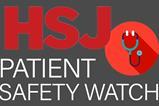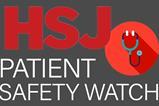HSJ hosts the Patient Safety Watch newsletter, written by Patient Safety Watch chief executive James Titcombe.
Good afternoon and welcome to the latest edition of the Patient Safety Watch newsletter.
BMA backs regulation of non-medical NHS managers
As reported by the Independent, a survey by the British Medical Association has highlighted a rise in the proportion of doctors that have said they would not feel confident raising concerns about patient care. In 2024, 26 per cent of 1,578 doctors reported a lack of confidence compared to 10 per cent of doctors surveyed in 2018.
In a speech on Monday, Phil Bamfield, BMA chair of the council said that the union will “continue to fight for change and the issue of employers trying to silence those who dare to speak up” and confirmed that the BMA were backing the regulation of non-medical managers.
This week, shadow health secretary Wes Streeting spoke to the Guardian newspaper about his views on the treatment of whistleblowers and regulation of NHS managers.
Midwives call on next government to improve staffing
The Royal College of Midwives has urged political parties to commit to safer and well-resourced maternity services ahead of the 4 July general election.
Calling on the next government to pledge to “the right staff in the right place with the right education and training to deliver good, safe care”, RCM chief executive Gill Walton said: “Every midwife and maternity support worker wants to be able to deliver the best and safest care to women and families. Unfortunately, too often and in too many of our trusts and health boards there are too few staff meaning care is spread too thinly.”
Undercover A&E
Many readers will have watched the Channel 4 Dispatches investigation report early this week, in which an undercover reporter filmed secretly whilst working in the accident and emergency department at Shrewsbury Hospital over a three month period. The documentary highlighted many instances of patients being treated in corridors and captures many examples of poor care.
Following the documentary, NHS England have written to NHS trusts stating that corridor care “must not be the norm” adding “…it should only be in periods of escalation and with board-level oversight at trust and system level… where it is deemed a necessity… it must be provided in the safest and most effective manner possible, for the shortest period of time… with patient dignity and respect being maintained throughout.”
CQC CEO announces sudden departure
Care Quality Commission chief executive Ian Trenholm has announced he will be leaving his post at the watchdog at the end of this month.
A message to staff explained Mr Trenholm had made the decision due to a number of personal reasons and the short notice was because of an upcoming holiday.
Saying he had been thinking about “what next” for some time, Mr Trenholm told staff: “The calling of the election means that whoever is leading the [CQC] from 4 July will need to build new relationships with the next government – this is important as whichever party wins there will be a big focus on the services we regulate. It wouldn’t be particularly helpful for me to start that process and then try and hand it over to someone else in a few months.”
Mr Trenholm’s announcement came shortly before an exclusive story in HSJ revealed that CQC itself acknowledged weakness in its effectiveness and approach. According to HSJ, an internal “problem statement” produced by interim chief executive Kate Terroni, referred to stakeholders and the Department of Health and Social Care “…losing confidence in our ability to deliver our purpose” adding that “…the way we work is not working and we are not consistently keeping people who use services safe.”
Migraine and epilepsy drug added to list of medications which must be avoided during pregnancy
The Medicine and Healthcare products Regulatory Agency has added migraine and antiseizure drug topiramate – also known by brand name Topamax – to the list of medications which should not be prescribed to women and girls unless they follow the requirements of the Pregnancy Prevention Programme.
The decision follows a review by the Commission on Human Medicines, which found children of mothers who took topiramate while pregnant were two to three times more at risk of developing an “intellectual disability, autism spectrum disorders and attention deficit hyperactivity disorder”.
The drug was already known to increase the risk of birth defects, so women were previously advised against using it during pregnancy and to use a highly effective contraceptive while taking the medication. However, being required to follow the Pregnancy Prevention Programme represents a strengthening of those safety measures.
The MHRA said that it was thought the medication was currently prescribed to just over 30,000 female patients under the age of 55 in England every month.
Sharing some good stuff…
National Maternity Safety Conference programme launched
The brilliant charity Baby Lifeline have announced the full programme for this year’s National Maternity Safety Conference, taking place in Birmingham on 26 September. This year’s conference will be focused on solutions to challenge and improve maternity and neonatal care, and will spotlight best practice across the UK and overseas. The conference aims to empower and inspire delegates, and to give them ideas to take back into their own work. Previous events have sold out quickly, so if you’d like to attend, please do book early.
Countdown to Patient Safety Congress!
This year’s HSJ Congress, chaired by Shaun Lintern, health editor at the Sunday Times, is rapidly approaching. The two-day event starting on 16 September in Manchester, focuses on honest conversations across a wide range of topics covering 11 content streams, including safety across the system, human factors, workforce wellbeing, mental health, virtual care, Patient Safety Incident Response Framework and leveraging AI.
The event will kick off with a rich panel discussion on this year’s conference theme Creating Safety Every Day in a Degraded System, which will hear from leaders including:
Dr Aidan Fowler, national director of patient safety, NHSE.
Rob Webster CBE, chief executive, NHS West Yorkshire Integrated Care Board
Andrew Murphy-Pittock, education director, HSSIB
Professor Jane O’Hara, director of research, THIS Institute, University of Cambridge
Professor Nicola Ranger, chief nursing officer, RCN
Dawn Benson, Lived Experience perspective
For more information on other sessions and speakers, check out fast-growing programme here. I hope to see many of you there!
A few final thoughts…
As stories regularly featured in this newsletter often highlight, we have seen a culture in the NHS where sometimes reputation has been prioritised over patient safety. This mindset cascades down through the ranks, creating an environment where staff can feel they must choose between their careers and the safety of their patients.
While the national patient safety strategy in England aims to support a culture that encourages staff to “speak up”, it shouldn’t be too controversial to say that much more needs to be done. True progress demands systemic changes beyond individual NHS organisations – there must also be system-wide alignment – from professional regulation to government departments – to create a “problem-sensing” culture at all levels of the healthcare system. Raising concerns must be normalised and rewarded, not penalised.
Sir Robert Francis recommended regulating NHS managers in his independent report on the Mid Staffordshire scandal in February 2010. This was resisted in favour of a “Fit and Proper Person Test” regulated by the CQC. Repeated inquiries suggest that this approach has been insufficient, and renewed calls for regulation of non-clinical mangers from the BMA and others, are understandable. Crucially though, any new regulation must genuinely support and protect whistleblowers, rather than adding another layer of ineffective bureaucracy.
In the weeks, months and years ahead, improving patient safety in the NHS and turning around the cultural issues that we have sadly seen time and time again, must be an absolute priority for us all.
That’s all for this edition, please look out for our next newsletter on 12 July. In the meantime, thanks for reading and please stay safe.































No comments yet